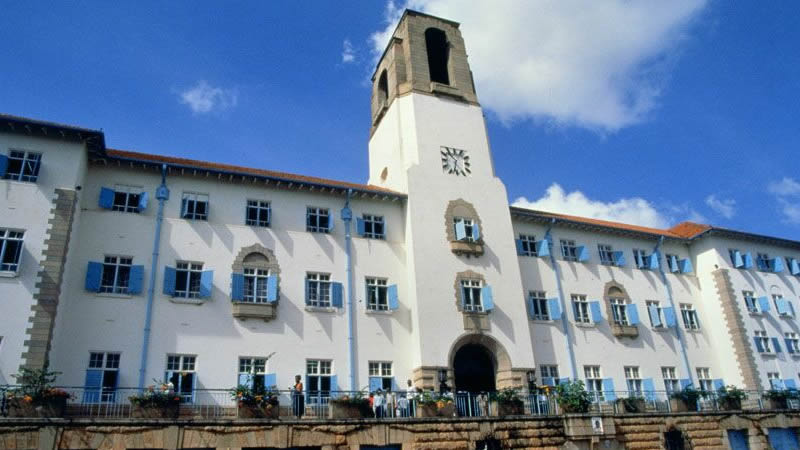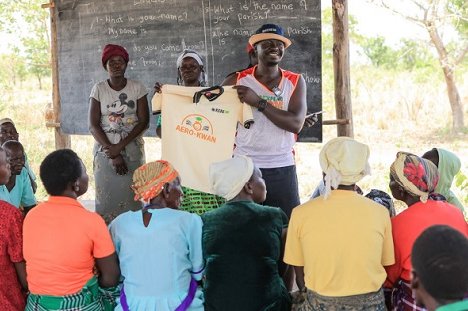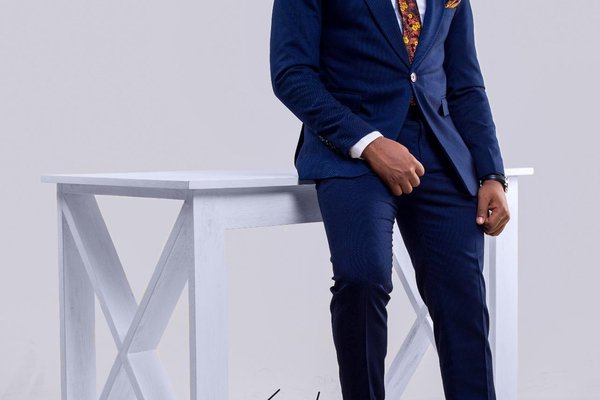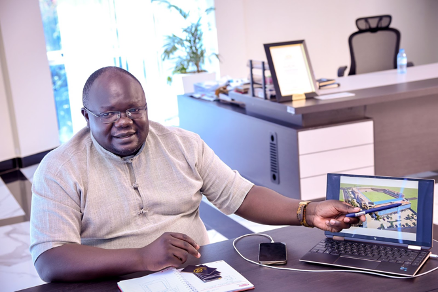By Charlotte Kawesa Ntulume
Please give us a peek at who Dr. Olivia Kituuka Kisubi is – the person, her family, professional life and achievements.
I am a mother of three boys and one girl. The major influences in my life are God, family and friends. I love to take long walks with my husband, as it gives us an opportunity to connect and keep fit. I am a surgeon attached to and heading the Upper Gastrointestinal Unit in the Department of Surgery at Mulago Hospital and a lecturer in the Department of Surgery at Makerere University College of Health Sciences. I have been practicing surgery for the last 20 years.
I am a Fellow of the World Association of Laparoscopic Surgeons (WALS) and a Fellow of the College of Surgeons of East Central and Southern Africa (COSECSA). I am a founding member of the Society of Uganda Gastroenterology Surgeons (SUGES), a member of the Association of Laparoscopic Surgeons of Uganda (ALASU) and a past president of the Association of Surgeons of Uganda (ASOU) 2016-2018. I have been a member of the Uganda Cancer Institute Research and Ethics Committee for the past 10 years, and I am currently pursuing a PhD in Bioethics.
Briefly tell us about your work as a surgeon and as a pioneer of laparoscopic surgery in Uganda.
I am a surgeon with specialized training in the field of the stomach, liver, pancreas, gall bladder and intestinal surgery, as well as minimal access surgery in endoscopy and laparoscopic (keyhole) surgery. I am one of the pioneers of developing and training surgeons in Uganda in laparoscopic surgery so that it becomes more available to Ugandans. I follow in the footsteps of my seniors, Prof. Moses Galukande and the late Dr. William Obote, who pioneered laparoscopic surgery at a time when human resource, equipment and support services were not available.
Along with a team of other young surgeons, I started doing laparoscopy in Mulago as far back as 2008 with the assistance and support of laparoscopic surgeons from Egypt. We went on to train nurses and biomedical technicians, and to make liaisons with suppliers of laparoscopic equipment to sustain these services and incorporate them into the Masters in Surgery training at Mulago. We also set up a surgical skills training lab in the Dean’s building at the College of Health Sciences in 2013 to help in further training of surgeons and medical students in laparoscopic skills. We conduct training using animals and simulators, as well as working on patients.
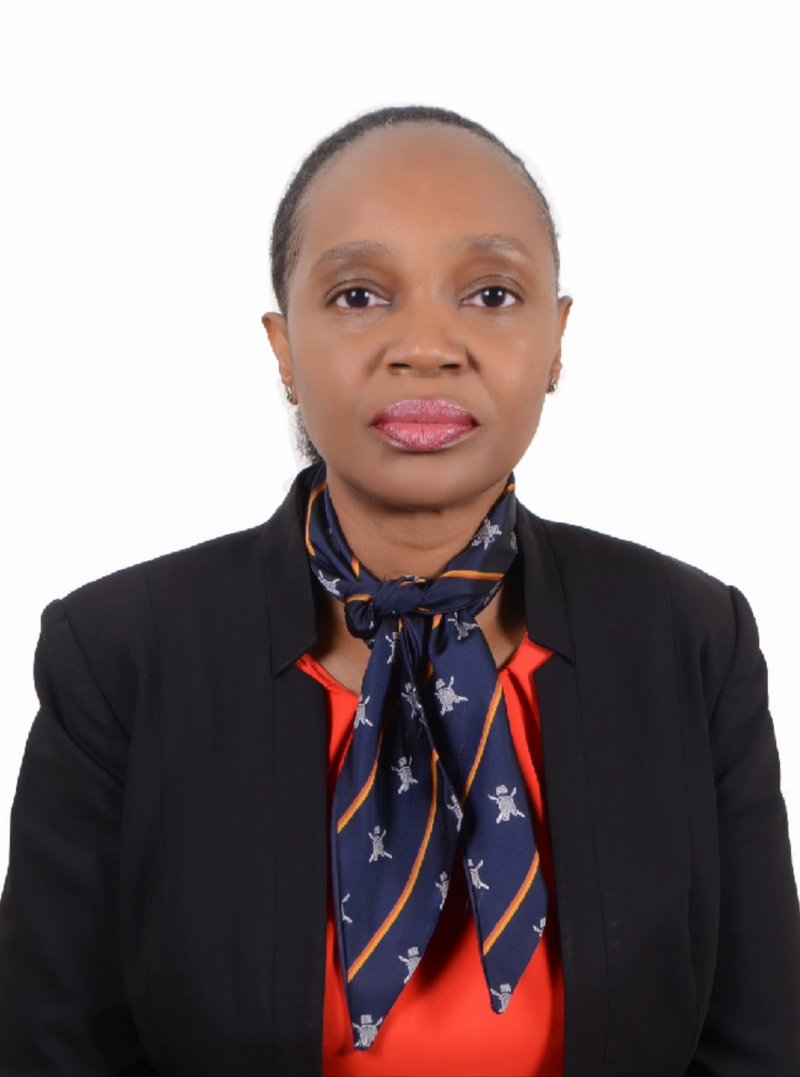
Dr. Olivia Kituuka
I am proud to see that laparoscopic surgery is now conducted at Mulago Hospital and we have over 10 surgeons who are able to conduct these surgeries safely and effectively. On average, we conduct at least six laparoscopic surgeries per week in the department of Surgery and the department of Obstetrics and Gynaecology. Laparoscopic surgery has also grown tremendously in the private sector, with the services available at most private-not-for-profit (faith-based) hospitals, not only in Kampala, but also in other regions in Uganda.
What role, if any, has Makerere University played in your groundbreaking achievements?
Makerere has provided an environment that allows me to push myself to achieve more for surgery in Uganda. Through conferences and collaborations with other institutions, I have had the opportunity to get exposure to these surgical techniques, as well as training opportunities at different centers of excellence all over the world. Makerere has supported me by granting me the time to go and acquire training in these areas, and also to identify training opportunities for myself and other colleagues interested in this field of surgery.
Makerere has also provided the space for us to improve training in these areas by helping set up the skills lab. It has also supported opportunities to attend conferences where we can build networks with other experts in this field. The backing of Makerere as a training institution gives our collaborators confidence that the skills that we learn from them are passed on to others.
What is your favorite memory from your time at Makerere University?
The interactions I had with fellow students, my first time in the department of Anatomy cadaver dissection room, my first time delivering a mother of her baby in the hospital, the time spent with my teachers on the ward and the jokes we would share, as well as the reprimand which made me work hard.
As a member of staff, my colleagues in the department of surgery and other departments continue to encourage me each day. I feel like they are my other family. They also challenge me to do better for our patients and our students.
How did your time at Makerere shape the person you are today? How did it impact your life?
I made friends that have lasted right through my professional career and have supported and encouraged me. I got mentors among the staff, like Prof. Ignatius Kakande, who nurtured my passion for surgery. Best of all, I saw many female surgeons who inspired me and helped me know that I could achieve my goal of becoming a surgeon.
What opportunities did you have and seize at Makerere that helped you get where you are today?
I had the opportunity to further my training and pursue a Masters in Surgery and became a surgeon. During my masters program, I got to interact with faculty from the University of California San Francisco, Duke University and McMaster University, and I was able to go for observerships and training in Canada. These helped me link with other faculty in liver, biliary and pancreatic surgery who inspired me to specialize in this area.
I also got to collaborate with the Canadian Network of International Surgeons (CNIS), which helped us set up the surgical skills lab and linked us to partners in the pharmaceutical industry who equipped us with laparoscopy training equipment. I got the opportunity to travel to India for fellowship trainings in laparoscopic surgery with the support of the department of Surgery.
I also had the opportunity to build links with other universities while I was acting head of department of Surgery for one year. We had collaborations built with McMaster University, which resulted in obtaining training positions for young surgeons in the field of cardiothoracic surgery. This was very satisfying to know that I was able to help develop other surgeons in their field of practice.
Besides Makerere University, what else do you attribute the success in your life and career to?
I think success is a relative thing. I consider myself more fortunate than successful, in that I have been in the right place at the right time and met the right people. I attribute all this to my faith and belief in the divine intervention of God. However, I acknowledge the strong educational background I had at my alma mater, Gayaza High School, and the values of hard work, integrity, honesty and respect for others that were instilled in me then, and which I have carried on through my career. My family – i.e. my husband and my parents have been my strongest supporters who have pushed me to achieve more and have faith in my capabilities. Finally, I have friends and mentors who have guided me in my career path.
What would you consider to be the defining point in your life or career?
A defining point in my life was giving my life to Christ and seeking to walk with His guidance while in secondary school. A defining point in my career was when I met my mentors during my third year undergraduate training, who inspired me to become a surgeon and showed me that medicine is a calling and a passion to serve others, and the rest comes back to you.
What is the most important lesson you have learned along the way?
Humility and respect for all people whether they are my colleagues, patients, or students. Surgery humbles you when you fail to do something, and someone less experienced than you does it and even teaches you. Respect for all, because you just never know where your help and support will come from.
When you look back at your life and work so far, what gives you the most pride?
My students and mentees who have gone on to succeed in their careers and achieve greater heights than me in their lives give me pride.
What are some of the greatest challenges and opportunities for someone like you coming from Makerere and rising up the career ladder?
Burnout is a big challenge that often rears its ugly head, especially as one puts in a lot of effort against many barriers. Also, striking the balance between building a career as well as the social expectations as a mother, a wife and as a member of the community at home. As one goes higher, the expectations and responsibilities at work increase, and this can place a lot of pressure on you. As you climb higher, your strengths, as well as your weaknesses, become more exposed. One can, therefore, get more opportunities like training, mentoring and consultancies, but one has to be cognizant of the responsibilities and repercussions of their actions and be more strategic in the opportunities they take.
What was your experience when the global pandemic happened and how much did it affect life as we knew it?
Like many people, the COVID pandemic helped me appreciate the important things in my life, these being family and friends. My career became less important as I learnt the value of life and how to keep connected with people and not just keep working and forget what it is to be human, to socialize and show love and compassion to others. As we build our careers, it is even more important to build social capital by being involved and active in our families and communities.
What advice do you have for recent graduates and those graduating soon, that may feel anxious about life, career and the future?
The world is looking for innovators; flexible and versatile people, and Makerere is also transitioning to prepare you for this. It is important that you have a passion for what you do, seek guidance from those who have taken the road before you, and be humble and willing to learn. The future is for those who seize opportunities and are willing to take every failure as a learning opportunity and a building stone for their ultimate goals. Learn a practical skill, a new language, develop your communication and leadership skills, get into community service, which will expose you to job opportunities and build your social network.
You have mentioned that the world has changed and is looking for innovators. How would you advise Makerere University to align itself to be relevant to the global community?
Makerere needs to get a community-based approach to identifying community challenges, and tailor learning and research to these areas. Mutually beneficial collaborations that can help fund this kind of work and provide skills transfer will get Makerere University recognized on the global scene. We have the Sustainable Development Goals, which provide a guide to today’s challenges and possibilities of funding towards programs, research, and training that can help us globally achieve these goals.
At a personal level, how do you give back to your community or motivate others to work toward the common good?
I have been involved in annual surgical outreaches to different regions of Uganda under the Association of Surgeons of Uganda for the last 17 years. I also participated in medical camps at the Baptist Church of Uganda. I am invested in the development of my local church in Iganga where my husband and I support programs for the women and children of the church. Through mentoring my students, I help instill in them the importance of community service as we attend surgical camps together.
What would you want your legacy to be?
I would like to be a person who inspires young people, both male and female, to achieve their full potential, maintaining integrity and respect for others, while helping others through mentorship, just as I was mentored and how they were mentored.
Related News
![]() Please join hands with the Makerere University Endowment Fund as it works towards attracting & retaining the best faculty, providing scholarships, and investing in cutting-edge research and technology.
Please join hands with the Makerere University Endowment Fund as it works towards attracting & retaining the best faculty, providing scholarships, and investing in cutting-edge research and technology.
